In partnership with the Ministry of Development, Industry and Foreign Trade (MDIC) and the National Industry Confederation (CNI), the Brazilian Aluminum Association (ABAL) launched February 27 in Brasília a “Roadmap for the Brazilian Aluminum Chain 2030”. A result of an ample process of collective building conducted by Observatório Sistema FIEP (Federation of Industries of the State of Paraná), it proposes a long-term plan in a structured and participative manner for this important sector of Brazil’s economy.
The Roadmap addresses specific details of each link in Brazil’s Aluminum Chain – Mining and Primary Transformation; Recycling; Semi-manufactured products and Application of Aluminum Products – and lays the path to growth, innovation and sustainable development for the entire sector. “It is essential to understand the threats and opportunities that are placed before us and what to do to be prepared for them. Aside from the participation of ABAL members, we count on the voices and contributions from government agents, academy, third sector and other links in the nation’s productive chain. The results we present by means of this Roadmap are the collective work of all involved over a period of a year”, highlights Tadeu Nardocci, President of ABAL’s Steering Board.
By project’s end, we reached the following global vision: “A Brazilian Aluminum Chain which is competitive, innovative, sustainable and integrated”. This vision of the future highlights the need for integration in the chain, from bauxite mining to the manufacturing of end products.
The work that involved 140 specialists and mobilized 75 public and private institutions was consolidated in over 240 strategic actions in connection with the following themes:
- Articulation of Actors
- Communication and Marketing
- Market Expansion
- Infrastructure and Logistics
- Quality, Certification and Standardization
- Human Resources
- Energy Safety
- Sustainability
- Technology and Innovation
- Taxes and Formalization
“Participation in the development of the Roadmap for the aluminum industry will help the government to devise innovative and competitive public policies for the sector”, stated the Minister of Development, Industry and Foreign Trade, Marcos Jorge. “MDIC will act directly in the implementation of the actions suggested in the Roadmap, facilitating the dialogue among the different actors of the sector, aside from making spot interventions in defense of the sector’s interests within the sphere of federal government”,
Among the proposed actions, are the need of campaigns that value the low carbon footprint of Brazilian metal and the development of incentive policies towards exporting the country’s industrialized goods.
One of the aspects addressed throughout the document is market expansion – which has been undergoing strong transformations in the last 10 years, especially with regard to losing ground to Chinese competition. Another factor with strong influence in the sector is the drop in the national production of primary aluminum which suffers under the increase in industrialization costs.
Compared to the international market, Brazil maintains its competitiveness at the beginning of the chain, its exports of aluminum ore (bauxite) and aluminum oxide (alumina) continue to grow and reached significant results in 2017. According to ABAL, exports of Brazilian aluminum grew 19% last year, while bauxite continues among the most important elements in its exports list in the ores sector.
“The Roadmap proposes to reorient this trend, stimulating integration in the chain in order to add value to our production along all links. It seeks to leverage the creation of environments that attract, retain and develop companies and investments focused on innovation and sustainability”, points out Milton Rego, Executive President for ABAL.





